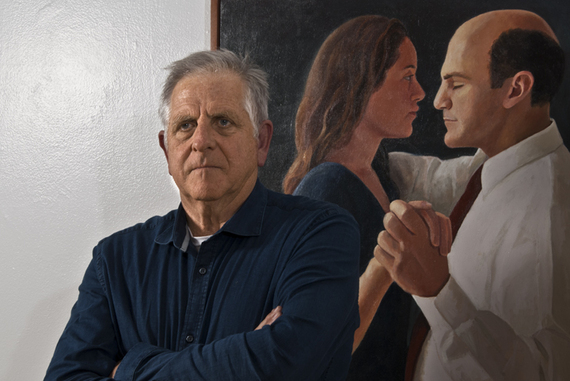Houellebecq is back with another dark tale
The new novel Sérotonine by Michel Houellebecq, the bad boy of French literature, is a saga of depression and death told with such irony and wit that readers seem to love it despite the unsettling themes. Maybe it’s just me but I found myself laughing out loud.
The English-language translation is due out in September and foreign fans of this quirky, fascinating writer are poised to snap it up.
Houellebecq entered serious writing via his poetry in the 1980s and 1990s and his style today reflects this attention to classic French usage. Much contemporary French writing slides into a sort of easy-to-read vernacular, to the exasperation of purists like me. His admirers justly credit him with becoming France’s biggest literary export with works translated into more than 40 languages.
True to form, the French don’t agree on Houellebecq – or anything else, for that matter. The impact of his new novel has divided the readers into opposite love-hate camps with hardly any middle ground. Houellebecq cannot leave you indifferent, notes a literary friend of mine.
He is laureate of the 2010 and 2015 Prix Goncourt and among his admirers is considered one of the greatest living writers in the French language. His unique style is the result of a background totally outside the usual career path of French writers. He is a trained agronomist and former computer specialist in the French Ministry of Agriculture. He openly steals his plots from his own life, taking his characters into the violent milieu of beleaguered French dairy farmers.
I was exhilarated by his virtuoso shifting from style to style, often devoting more than a full page to his narrator’s musings, run together in stream of consciousness mode without punctuation. His mastery of French syntax allows him to control his nuances and to manage the story’s leaps forward and backward in time. Critical studies have tried to pin him down but reader opinion varies from adulation to contempt.
Houellebecq constructs this story around the drug serotonin which he defines as a miracle medicine “that helps people to live, or at least not to die, for a while”. The fast pacing and the short chapters keeps the story unfolding in unpredictable directions.
His narrator is so mixed up as to be almost comic. He begins by complaining that he cannot bear to hear his name spoken, Florent-Claude, because it is too effeminate and contradicts his exceptional virility, “at least as considered by certain women”. Indeed, his sexual confusion carries the plot forward as he attaches himself to the wild Japanese girl Yuzu, then to Parisians Claire, Kate, and the most fatale femme of all, Camille. He ends up sad, unloved and impotent.
Among the way, he invokes the ideas of Schopenhauer, Proust, Céline, Baudelaire, Thomas Mann, Plato and Dostoevski.
The narrator links up after several years apart with his old friend Aymeric, his former roommate from their studies together at the National Agronomy Institute. He observes his friend dabble in child prostitution and pornography. Finally he drifts back to Claire, the woman he truly loved. He cannot find the courage to make contact with her, however, and so spies on her and her young son by another lover. Desperate to own her entirely, he plots to kill the boy with a long-range high-powered rifle. Although he teases the reader, he cannot bring himself to pull the trigger.
Respected literary critic Baptiste Liger finds the humor of Sérotonine anchored melancholy but “magnificently written”. One loses count of the “memorable scenes”, Liger writes. And he quote Houellebecq as writing on the subject of love, “this kind of dream, this conjunction of coincidences that allows us to transform our terrestrial existence into bearable moments – of which love is, in fact, the only way to do it.”
A drawing by the reviewer Michael Johnson of Michel Houellebecq:

This article is brought to you by the author who owns the copyright to the text.
Should you want to support the author’s creative work you can use the PayPal “Donate” button below.
Your donation is a transaction between you and the author. The proceeds go directly to the author’s PayPal account in full less PayPal’s commission.
Facts & Arts neither receives information about you, nor of your donation, nor does Facts & Arts receive a commission.
Facts & Arts does not pay the author, nor takes paid by the author, for the posting of the author's material on Facts & Arts. Facts & Arts finances its operations by selling advertising space.


